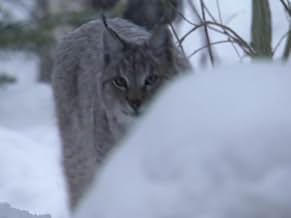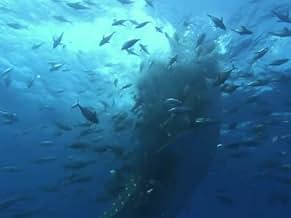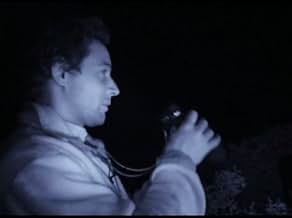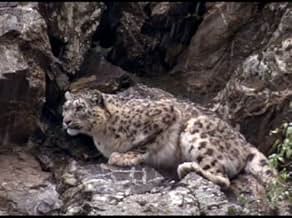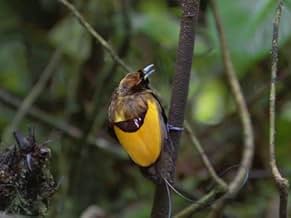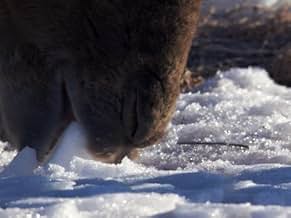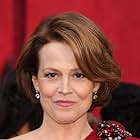A documentary series on the wildlife found on Earth. Each episode covers a different habitat: deserts, mountains, deep oceans, shallow seas, forests, caves, polar regions, fresh water, plain... Read allA documentary series on the wildlife found on Earth. Each episode covers a different habitat: deserts, mountains, deep oceans, shallow seas, forests, caves, polar regions, fresh water, plains and jungles. Narrated by David Attenborough.A documentary series on the wildlife found on Earth. Each episode covers a different habitat: deserts, mountains, deep oceans, shallow seas, forests, caves, polar regions, fresh water, plains and jungles. Narrated by David Attenborough.
- Won 4 Primetime Emmys
- 15 wins & 15 nominations total
Browse episodes
Summary
Reviewers say 'Planet Earth' is acclaimed for its stunning cinematography and David Attenborough's engaging narration. The series is celebrated for its educational value and evocative portrayal of Earth's ecosystems. However, some critics note script gaps and insufficient scientific depth. Concerns exist about the focus on predation and survival in animal behavior portrayals. A few reviewers are disappointed with the Blu-ray release for omitting extras. Despite these issues, 'Planet Earth' is widely regarded as a significant achievement in nature documentaries.
Featured reviews
This is a beautifully shot series looking at nature in all it's natural wonder, showcasing a breathtaking diversity of life from the poles to the deserts.
With the spectre of global warming rapidly looming I wonder just how much of these wonderful ecosystems are going to survive. I just hope that in 100 years time people will not watch 'Planet Earth' with the same curiosity that I have when look at etchings of the Dodo from old books.
TV like 'Planet Earth' has made me think a lot more about the natural world that surrounds me and the impact I am having on it. We can't sit back and let this disappear. It's for all future generations, not just this one.
With the spectre of global warming rapidly looming I wonder just how much of these wonderful ecosystems are going to survive. I just hope that in 100 years time people will not watch 'Planet Earth' with the same curiosity that I have when look at etchings of the Dodo from old books.
TV like 'Planet Earth' has made me think a lot more about the natural world that surrounds me and the impact I am having on it. We can't sit back and let this disappear. It's for all future generations, not just this one.
10Loordssm
I have never, ever given any title a perfect ten. Mainly because I never thought that there will ever be something that truly deserves the praise. I was so wrong. Watching this amazing display of planet earth's resources in high definition is just simply breath taking. In addition David Attenboroughs commentary is spot on. Calm, informative and quiet in just the right places. Sometimes the picture is so beautiful, that one just simply forgets the commentary and just starer in awe on the beauty of the landscapes and other details. Sometimes the director feeds the viewer with juicy bits of slow motion scenes to add to the effect of the moment. I simply can't recommend this title enough to everyone. Just pick it up anywhere you can find it. Spectacular.
As the influence of man expands across the globe, fewer and fewer truly untouched wilderness exists. This series aims to use technology never used for nature programmes before to take us into these wildernesses and see the environment within them and the creatures that live there. Starting with a journey from one pole to the other, this series explores the extreme conditions of mountains (from the birth of one to the coldest of those existing), deserts, caves, oceans, fresh waters and others to present some of the most impressive footage ever seen in a nature documentary.
With a budget of about £40 million, the BBC were going to have to deliver something pretty special to avoid the usual accusations of waste tax payer's money, catering to a small audience etc etc. However with Planet Earth they have easily silenced the critics to present a nature programme that is interesting and education. The biggest selling point is the footage which, at its worst is impressive but at its best is simply breath-taking and actually had me saying "wow" at some points. I am not naturally a nature programme viewer but this show had me hooked from episode 1 where a quick glance at the opening minutes had me staying with it for the following eleven weeks. The footage is impressive and, although it is the weakest part of each hour, I did enjoy some of the "Planet Earth Diary" sections where we actually saw the technology, techniques and sheer trial of getting the views that we get. My words can't really do it justice but the series gives footage that you won't have seen anywhere else before with episode 1 claiming that the footage of a pack of dogs hunting told experts things they hadn't previously known.
However I have seen some a couple of nature documentary feature films recently that have also had impressive footage but Planet Earth backs it up with a typically informative and engaging narration from David Attenborough. For me he added enough educational value to prevent the series just being televisual wallpaper which of course is what it also does in terms of providing some beautiful material that would work even if the sound broke on your television. Like many others though, I would have liked there to be more connection made to the impact that man's actions are having on the ecosystems and animals that we are shown for example are they getting rarer or having their habitats shrinking? Occasionally it does this but nowhere near enough which is partly why some critics have labelled it "environmental porn", which I can understand but do not totally agree with.
Overall this is a great series that does a great job of presenting the beauty of the natural world but just about having enough educational value to it to avoid it just being the television equivalent of wallpaper for your computer. The shots are impressive and the range of creatures and habitats that are presented makes this well worth seeing. I'm sure that wildlife fans will long for more detail but as a casual viewer this was just what I was looking for. An impressive and memorable look at the world that we live in.
With a budget of about £40 million, the BBC were going to have to deliver something pretty special to avoid the usual accusations of waste tax payer's money, catering to a small audience etc etc. However with Planet Earth they have easily silenced the critics to present a nature programme that is interesting and education. The biggest selling point is the footage which, at its worst is impressive but at its best is simply breath-taking and actually had me saying "wow" at some points. I am not naturally a nature programme viewer but this show had me hooked from episode 1 where a quick glance at the opening minutes had me staying with it for the following eleven weeks. The footage is impressive and, although it is the weakest part of each hour, I did enjoy some of the "Planet Earth Diary" sections where we actually saw the technology, techniques and sheer trial of getting the views that we get. My words can't really do it justice but the series gives footage that you won't have seen anywhere else before with episode 1 claiming that the footage of a pack of dogs hunting told experts things they hadn't previously known.
However I have seen some a couple of nature documentary feature films recently that have also had impressive footage but Planet Earth backs it up with a typically informative and engaging narration from David Attenborough. For me he added enough educational value to prevent the series just being televisual wallpaper which of course is what it also does in terms of providing some beautiful material that would work even if the sound broke on your television. Like many others though, I would have liked there to be more connection made to the impact that man's actions are having on the ecosystems and animals that we are shown for example are they getting rarer or having their habitats shrinking? Occasionally it does this but nowhere near enough which is partly why some critics have labelled it "environmental porn", which I can understand but do not totally agree with.
Overall this is a great series that does a great job of presenting the beauty of the natural world but just about having enough educational value to it to avoid it just being the television equivalent of wallpaper for your computer. The shots are impressive and the range of creatures and habitats that are presented makes this well worth seeing. I'm sure that wildlife fans will long for more detail but as a casual viewer this was just what I was looking for. An impressive and memorable look at the world that we live in.
Planet Earth is a worthy documentary series that looks not just at the animals and plants in remote areas, but at the ever-changing ecosystems that look prone to collapse in the near future. This is the sort of programme that the BBC excels at and makes better than anyone else.
The camera-work is fantastic and the sections at the end of each programme where they look at how certain parts were filmed is interesting as you see the dedication of the crew who go out to these desolate spots for months to film sections that will last only a couple of minutes on screen. Much of the wildlife has barely been filmed and some such as the wonderfully agile Wild Amur leopard have probably only been seen by very few living people in the flesh.
It is narrated by David Attenborough who has the perfect voice for wildlife documentaries and his presence is almost a guarantee of quality in itself. His record speaks for itself.
Some of the sequences shown are very brave, most notably the struggles of the polar bear to find food on the ever-decreasing Arctic ice. Too many nature documentaries succumb to "niceness" and show only cute animals looking sweet. To understand how Man is changing the planet it is crucial to show how wasting energy may be affecting wildlife in distant lands (or seas). Sadly it is also important as it seems all too likely that much of the footage will become museum property in the near future, showing subsequent generations the marvellous diversity of life Earth used to enjoy.
Overall it has some good educational value as it can be enjoyed both by young children and was recommended by my tutors during a conservation module of my degree.
The camera-work is fantastic and the sections at the end of each programme where they look at how certain parts were filmed is interesting as you see the dedication of the crew who go out to these desolate spots for months to film sections that will last only a couple of minutes on screen. Much of the wildlife has barely been filmed and some such as the wonderfully agile Wild Amur leopard have probably only been seen by very few living people in the flesh.
It is narrated by David Attenborough who has the perfect voice for wildlife documentaries and his presence is almost a guarantee of quality in itself. His record speaks for itself.
Some of the sequences shown are very brave, most notably the struggles of the polar bear to find food on the ever-decreasing Arctic ice. Too many nature documentaries succumb to "niceness" and show only cute animals looking sweet. To understand how Man is changing the planet it is crucial to show how wasting energy may be affecting wildlife in distant lands (or seas). Sadly it is also important as it seems all too likely that much of the footage will become museum property in the near future, showing subsequent generations the marvellous diversity of life Earth used to enjoy.
Overall it has some good educational value as it can be enjoyed both by young children and was recommended by my tutors during a conservation module of my degree.
10cmcoveos
The subtitle of the series is not an exaggeration; it has a literal meaning: This is indeed our planet as "never seen before". Right from the outset you are witnessing the most amazing pictures modern technology has ever produced: Views from space, but close enough so we may see the glorious beauty of specific regions of our home planet. Birds of paradise of such beauty that can convince you this is the real paradise and you need not ask for anything more; All the creatures are filmed in unique settings and situations (a polar bear with two cubs emerging from their den as spring comes and gliding down a snow covered slope, the strategic genius of wild dogs encircling a herd of impalas, rare views of a snow leopard and her cub, a white shark in chase of a seal bursting completely out of the sea and hanging in the air for a second and hundreds of other breath-taking shots. Feeling happy for the gift you are given and the next moment plunged in bitter thoughts about how unbelievably brutally has mankind treated it. My rating: Definitely 10/10.
Storyline
Did you know
- TriviaFor the air shots, a special airborne camera was used with a 400mm lens that was able to zoom into single animals from a kilometer away without disturbing them.
- Alternate versionsSigourney Weaver replaces David Attenborough for the narration of the US version.
- ConnectionsEdited into Earth (2007)
- How many seasons does Planet Earth have?Powered by Alexa
Details
- Release date
- Countries of origin
- Official sites
- Language
- Also known as
- Planet Earth Extremes
- Filming locations
- Production companies
- See more company credits at IMDbPro
- Runtime50 minutes
- Color
- Aspect ratio
- 1.78 : 1
Contribute to this page
Suggest an edit or add missing content








